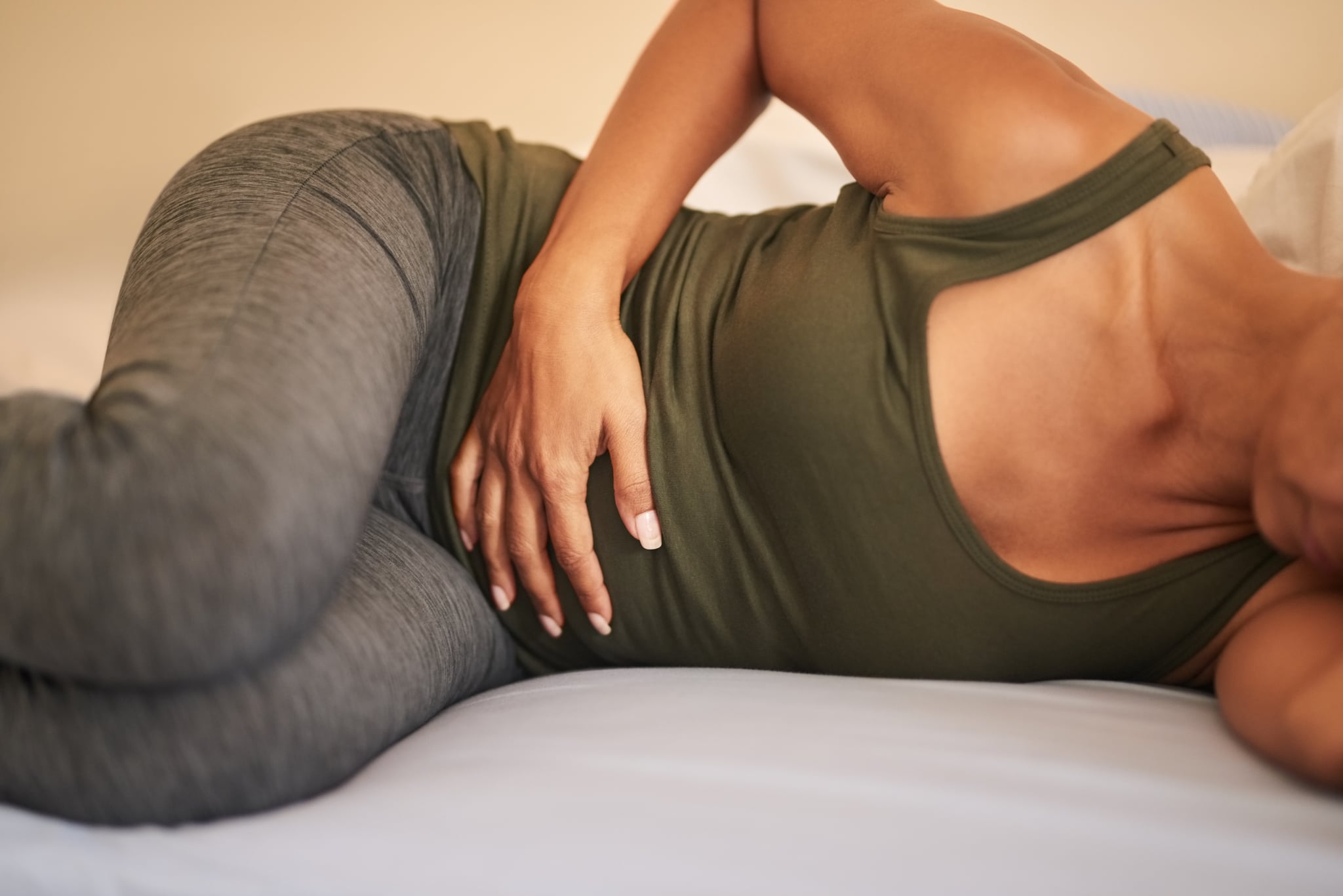It’s a tale as old as time: a few days after your period began, the bleeding suddenly stops. Throwing caution to the wind, you throw on your cutest undies — but of course, then the bleeding comes back, stronger and heavier than before. What gives? Turns out, this stop-and-go flow isn’t unusual.
To understand why, you first have to know what happens during a regular period. Traditionally, a period will occur every 21 to 35 days and last for three to seven days, Megan Gray, MD, FACOG, a board-certified ob-gyn in Florida, told POPSUGAR. At that point, the uterine lining is shed, resulting in the bleeding you’ve come to expect from that time of the month. The amount of tissue that builds up throughout the month can vary, making some periods lighter or heavier than others.
Dr. Gray explained that the tiny blood vessels that feed the uterine lining are also affected by changes in hormone levels that occur naturally during your cycle. “The degree of bleeding from these vessels is directly correlated to the action of the hormones,” Dr. Gray said. “The shedding of the lining and bleeding does not occur uniformly along the inside walls of the uterus, which can account for the variation in bleeding day to day within that three- to seven-day timeframe.”
Even if your flow stops and restarts, that too can be normal, as long as it occurs within the usual timeframe for your period (five days being the sweet spot). However, any stop-and-go bleeding that happens outside of this window likely isn’t normal, Patricia Lenihan, MD, an ob-gyn in Texas, told POPSUGAR. For example, Dr. Lenihan explained that you shouldn’t bleed for three days, then skip four days, and then bleed for another five.
However, Dr. Lenihan noted that, when doctors talk about “normal” periods, they’re only referring to people who aren’t on birth control. Because different forms of birth control can have a variety of side effects (like reducing the length of your period), it’s harder to generalize what is or isn’t normal. “What changes are normal completely depends on the type of birth control being used, which is why it’s always important to discuss cycle expectations with your doctor,” Dr. Lenihan said.
